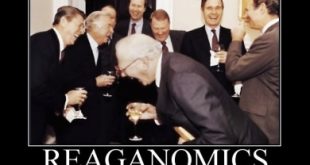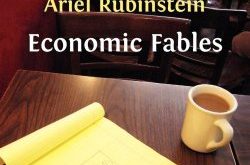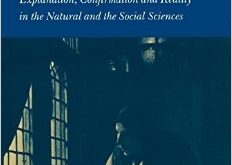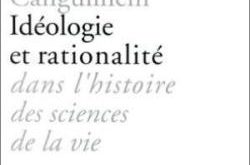Trumped-up trickle-down tax cuts Who would have thought that Lafferian supply-side economics and ‘trickle-down’ horseshit would be resurrected? Yours truly, for one, thought we had buried those zombies for good. Trump and the GOP thought otherwise and have now decided to give wealthy business owners and corporate shareholders an early Christmas gift this year … Advertisements
Read More »Economic fables
This book reflects my debate with myself about economic theory. On the one hand, I am captivated by the charm of formal models: tales emerge from the formal symbols, and these tales have almost miraculous powers over me. On the other hand, I am obsessively occupied with denying any interpretation contending that economic models produce conclusions of real value. I feel attracted to economics as a branch of philosophy and as an academic field in which an intelligent...
Read More »Mainstream economics — an obscurantist waste of time
Mainstream economics — an obscurantist waste of time One may perhaps, distinguish between obscure writers and obscurantist writers. The former aim at truth, but do not respect the norms for arriving at truth, such as focusing on causality, acting as the Devil’s Advocate, and generating falsifiable hypotheses. The latter do not aim at truth, and often scorn the very idea that there is such a thing as the truth … The authors I have singled out are far from...
Read More »The real harm done by Bayesianism
The real harm done by Bayesianism The bias toward the superficial and the response to extraneous influences on research are both examples of real harm done in contemporary social science by a roughly Bayesian paradigm of statistical inference as the epitome of empirical argument. For instance the dominant attitude toward the sources of black-white differential in United States unemployment rates (routinely the rates are in a two to one ratio) is...
Read More »The first speculative bubble
The first speculative bubble [embedded content] Advertisements
Read More »Carmina Burana
[embedded content] Advertisements
Read More »Chicago economics delirium VSOP
Chicago economics delirium VSOP Macroeconomics was born as a distinct field in the 1940s (sic!), as a part of the intellectual response to the Great Depression. The term then referred to the body of knowledge and expertise that we hoped would prevent the recurrence of that economic disaster. My thesis in this lecture is that macroeconomics in this original sense has succeeded: Its central problem of depression-prevention has been solved, for all practical...
Read More »Chicago economics delirium
I believe there is no other proposition in economics which has more solid empirical evidence supporting it than the Efficient Market Hypothesis. That hypothesis has been tested and, with very few exceptions, found consistent with the data in a wide variety of markets … Michael Jensen I am skeptical about the argument that the subprime mortgage problem will contaminate the whole mortgage market, that housing construction will come to a halt, and that the economy will slip into...
Read More »La discipline économique et le mirage de la ‘vraie science’
La discipline économique et le mirage de la ‘vraie science’ Le mirage de la « vraie science », dont la puissance fantasmatique est immense chez les économistes, met sur la voie d’une autre catégorie canguilhemienne, qui permet peut-être de donner sa qualification la plus précise à la situation épistémologique de l’économie : il s’agit de la catégorie « d’idéologie scientifique » … La catégorie d’idéologie scientifique est d’abord purement interne au...
Read More »Richard Thaler et les fausses mouches imprimées
Richard Thaler et les fausses mouches imprimées Richard Thaler … part de l’idée que si les individus sont incapables pour tout un tas de «biais cognitifs» et culturels de prendre les meilleures décisions, il faut les y aider en les accompagnant dans leurs choix de «tous les jours». D’où son idée d’imposer aux individus des décisions tout en leur faisant croire qu’ils conservent leur pleine liberté de choix. Son application la plus connue citée dans...
Read More » Lars P. Syll
Lars P. Syll







